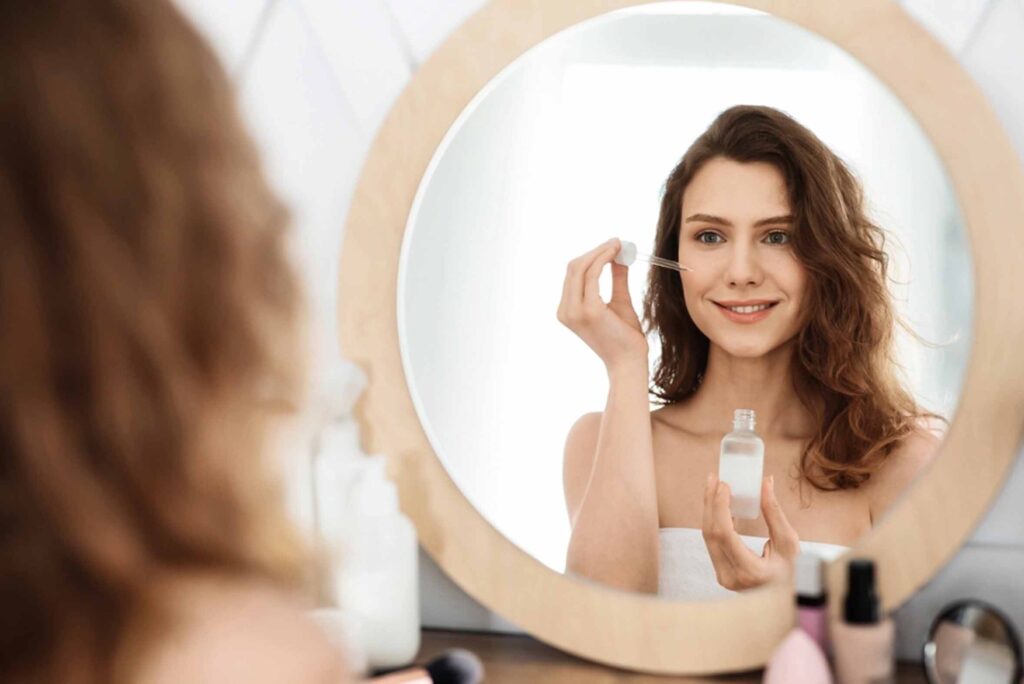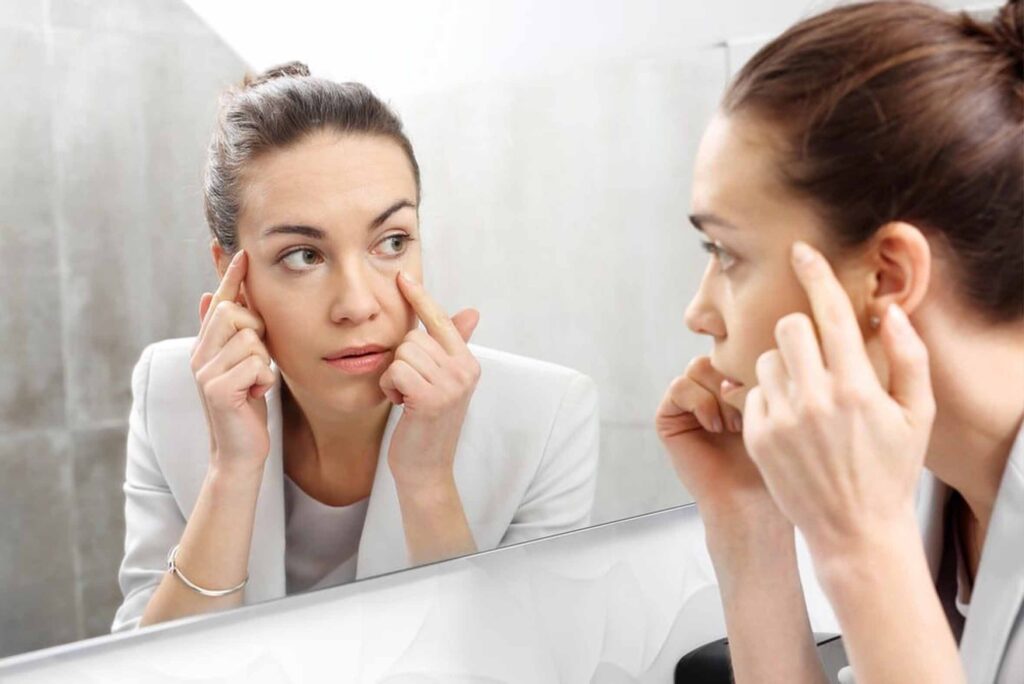
Essential to Hear What Skin Says
Common Signs Your Skin Is Talking Let’s break down some of the common ways your skin speaks. These signs are

Most people think of skin as just a surface. Something we put makeup or lotion on. But the truth is, skin is an organ, just like your heart or lungs. In fact, it is the largest organ of the human body. It protects us, helps us stay healthy, and plays a big role in how we feel every day. That’s why it’s important to care for it—just like we care for the rest of our body.
This blog will explain why skin matters, how it works, what harms it, and how you can care for it every day. You’ll also learn about helpful skincare habits and tips that really work.
Skin may seem simple, but it’s complex. It has three layers:
Together, these layers keep your body safe. Your skin renews itself every 28 to 40 days. That means new skin cells come in and old ones die off. This is why daily skin care is so important—it helps support that process.
Let’s repeat this: Skin is an organ and it needs care. Like your heart or kidneys, your skin has many jobs:
When skin is healthy, it does all these jobs well. But when it’s dry, damaged, or infected, your health can suffer. That’s why skin care is not just about beauty—it’s about well-being.
Many things can hurt your skin. Some are from the outside world. Others come from inside your body. Here are a few common causes of skin damage:

The sun’s rays, especially UV rays, damage your skin over time. It can cause:
That’s why sunscreen is so important—even on cloudy days.
Air pollution contains harmful particles. These stick to your skin and clog pores. Over time, they cause breakouts and dull skin.
Some soaps, scrubs, and skincare items are too strong. They strip your skin’s natural oils and cause dryness or irritation.
Your skin reflects what you eat. Foods high in sugar, salt, or processed fats can cause acne or inflammation.
When your body lacks water, your skin becomes dry, tight, and flaky.
Your skin repairs itself while you sleep. If you don’t rest, your skin won’t heal properly.
Because skin is an organ and it needs care, daily skincare habits matter. You don’t need a 10-step routine. Just a few good habits will make a big difference.
Wash your face with a mild cleanser twice a day. Don’t use very hot water—it dries out the skin. Avoid harsh scrubs that can cause micro-tears.
Your skin needs moisture to stay soft and healthy. Use a moisturizer that suits your skin type (dry, oily, sensitive, etc.). This helps lock in water and protect the skin barrier.
Even when it’s cloudy, UV rays can reach your skin. Use a broad-spectrum SPF 30 or higher every morning. Reapply every two hours if you’re outside.
Drink water throughout the day. This keeps your skin cells hydrated and glowing from within.

A diet rich in fruits, vegetables, healthy fats, and lean proteins supports skin health. Vitamins like A, C, E, and zinc are great for your skin.

Aim for 7–9 hours of sleep each night. This is when your skin does most of its repair work.
It may be tempting to pop a pimple, but this can lead to scars and infections.
Your skin’s needs change with age. Here’s a quick look at what to expect:
Skin is usually firm and smooth. Oil production may be high. Acne may still be an issue. A simple routine with a gentle cleanser, moisturizer, and SPF works well.
Fine lines may start to appear. Collagen production slows down. You may notice dullness. Adding antioxidants like vitamin C can help brighten your skin.
Skin becomes thinner and drier. Wrinkles and age spots appear. Use hydrating and anti-aging products like hyaluronic acid and retinol.
Skin may sag and feel dry. Focus on moisture, sun protection, and products that support elasticity.
No matter your age, remember: Skin is an organ and it needs care at every stage of life.
Your emotions affect your skin more than you may think. Stress can trigger:
When you’re stressed, your body releases cortisol. This hormone increases oil production, which clogs pores and leads to breakouts.
Taking care of your mental health helps your skin, too. Try stress-busting activities like:
There’s a lot of wrong information online. Let’s clear up a few common skincare myths.
Truth: All skin types need hydration. If you skip moisturizer, your skin may make more oil to compensate.
Truth: A burning feeling often means irritation. Your skin should feel calm and comfortable.
Truth: UVA rays can pass through windows. Daily sunscreen is a must—even inside.
Truth: Not always. Some natural ingredients can irritate skin. What matters is whether the product works and is safe for your skin type.
There are so many products out there. How do you choose the right one?
Are you oily, dry, normal, combination, or sensitive? Your skin type will guide what products to use.
Avoid products with alcohol, sulfates, parabens, and added fragrance—especially if you have sensitive skin.
Check for active ingredients that match your skin needs. Some examples:
Before using a new product, apply a small amount behind your ear or on your inner arm. Wait 24–48 hours to check for any reaction.
Skin reacts to changes in weather. You need to adjust your routine depending on the season.
Cold air dries out the skin. Use a heavier moisturizer and avoid long hot showers.
Heat and humidity can make you sweat more. Use lightweight, non-comedogenic products and apply sunscreen often.
These are good times to reset your skincare routine. You might need to exfoliate more to remove dead skin cells and adjust your products based on humidity.
If you have ongoing skin problems—like acne, eczema, or rashes—it’s best to see a skin doctor. They can diagnose the issue and suggest the right treatment.
Also, it’s a good idea to get a skin cancer screening once a year if you spend a lot of time in the sun or have moles that change in shape or color.
Think of your skin as more than just your appearance. It is a living, breathing organ that keeps you safe, healthy, and whole. Just like your heart or lungs, it deserves daily care and attention.
Simple steps—like cleansing, moisturizing, using sunscreen, and eating well—can make a big difference. Don’t wait until something goes wrong. Start now. Treat your skin with kindness every day.
And if you’re looking for high-quality skincare products, Jasyn Michael Skincare offers gentle, effective solutions for all skin types. Their products are designed to support healthy skin from the outside in. Because your skin is an organ—and it needs care.

Common Signs Your Skin Is Talking Let’s break down some of the common ways your skin speaks. These signs are

Premature Skin Aging Premature skin aging means your skin looks older than your actual age. For example, if you’re 30

Glow Up or Go Home: The 14 Skincare Rules Gen Z Swears By 1. Simplicity and Clarity Matter Most Gen

How Weather Impacts Skin Weather impacts your skin more than you think. The temperature, humidity, sun exposure, and wind can